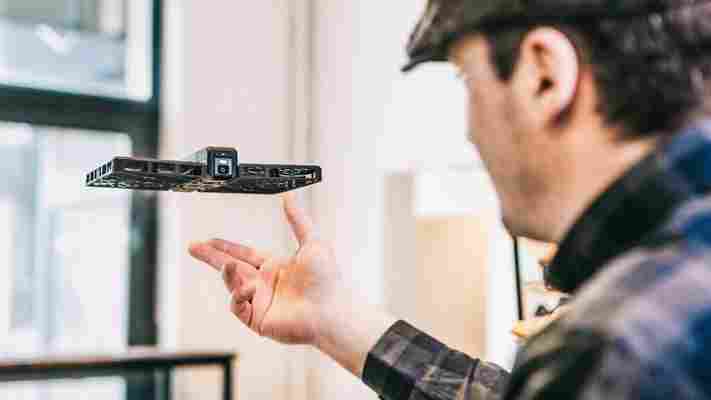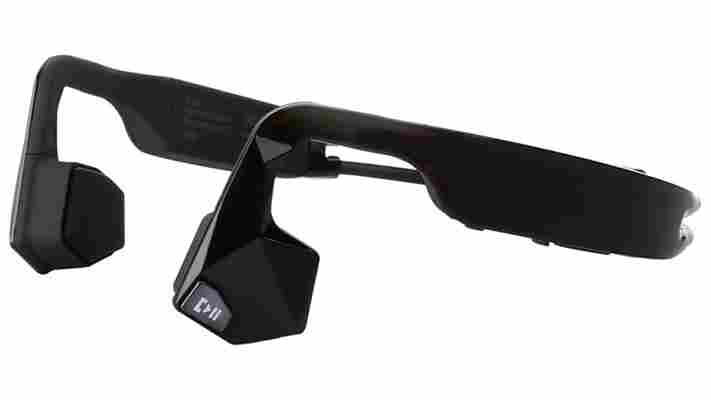Faraday Future debuts its stunning FFZero1 electric car concept at CES
Electric vehicle maker Faraday Future (FF) showed off its first vehicle concept, the FFZero1, today at CES 2016 .

The racing-inspired car was introduced by head designer Richard Kim, who led design efforts for the BMW i3, i8 and i8 Spyder concepts.
It incorporates what FF calls Variable Platform Architecture, a modular system that lets the company create new vehicle configurations from a single framework easily to meet different needs and build variants quickly. For example, batteries can be added in rows beneath the passenger compartment for extra range.


The FFZero1’s exterior features smooth lines and aerodynamic styling that make it look like a sensible reimagining of the classic Batmobile from the live action TV show based on the Lincoln Futura concept.
“Aero tunnels” seen in the front channel air through the vehicle to reduce drag and remove battery heat.
There’s a main character line that the company is calling a “UFO” line running around the side of the car to suggest that it is “not of this world.” Kim remarks that it will feature as a design cue in future FF vehicles.
On the inside is an all-white interior with a single seat for the driver at a 45-degree angle. Kim said the design for the seat was inspired by NASA’s zero-gravity research findings for maximum comfort and circulation.
The spine of the headrest has an oxygen and water supply that plug into a port in a helmet designed in-house.
You’ll also find a propeller-shaped instrument panel, and a smartphone docked in a steering wheel for accessing information, navigation and secondary vehicular functions. There’s also a multi-touch screen that supports gestures and swipes, with augmented reality projected on the road.
Of course, the FFZero1 isn’t going to hit the streets anytime soon. Kim said, “It’s an extreme testbed for concepts we’re working on for up-and-coming vehicles.” The company said that it plans to deliver its first production vehicle in a couple of years.
Along with unveiling the concept at CES, FF took the opportunity to introduce its strategic partner, Chinese entertainment and electronics firm LeTV . The two companies will work together on vehicular and self-driving technologies as well as new ways to bring internet connectivity and digital content to FF vehicles.
The company believes it can move quicker than its competition because of its use of all-digital technology for designing vehicles and visualizing them in VR before building anything.
It has moved fairly quickly to establish its operations: in only 18 months, the company has built a team of 550 employees in California alone, with backgrounds in firms like Apple, BMW, Boeing, Ford, GM, Jaguar and Tesla. It’s also set to spend $1 billion to begin building its 3 million sq. ft. manufacturing plant in North Las Vegas in the next few weeks.
Senior VP of R&D and product development Nick Sampson said, “You don’t need a 100-year legacy in the automotive industry to define what the next generation of transportation needs to look and feel like.” It’ll be interesting to see if FF can make good on that claim.
➤ Faraday Future
Who needs selfie sticks when this Hover Camera drone can follow you around?
Selfie sticks are arguably dumb, but selfie sticks on wings? The guys at Zero Zero Robotics might be onto something.

The Beijing-based company today unveiled the Hover Camera drone, a foldable device that can track your face and follow you around to snap videos and photos wherever you go. We saw a demo of it last week, and upon launch the app it was able to quickly scan its periphery for faces and locks on to whomever you assign. Then, walk around and it’ll keep close – without actually running into you.
Word of warning, the thing is extremely loud. It’s encased in a carbon fiber body which makes it lightweight and durable, but this also means you can hear every motor spinning to keep it in the air.
Spec-wise, it’s got a 13MP camera that can shoot 4K videos or 360-degree panoramic shots. It can hover at a maximum altitude of 164 feet.
To start, just turn it on and toss it ahead of you and it’ll begin to hover. With the app, you can use a double finger drag to change its perspective, or one-finger drag to change its height in the air. When you’re done with it, just fold it on half and stash in in your bag. It’s about the size of three Kindles stacked on top of another.
Zero Zero Robotics says since the camera has object-recognition technology built in, it can avoid obstacles and flying into people as it follows you. What it doesn’t have, however, is a GPS tracker, so should you lose your Hover Camera, you’ll need to manually retrace steps to find it again.
The Hover Camera is not currently for sale, but the team is looking for beta testers to help develop it further before putting it on the market for an estimated price of $600. You can sign up for the program here .
The future of audio: KOAR Bone Conduction Bluetooth Headset eliminates the wires (48% off)
There’s a flood of Bluetooth headphones on the market, but you likely haven’t seen anything like this. Using bone conduction technology to deliver astoundingly clear sound directly to your inner ears, the KOAR Bone Conduction Bluetooth Headset is pulled right out of science fiction.

For a limited time, you can pick up this innovative, top-quality headset for $76.99 from TNW Deals . If it’s good enough for Beethoven, it’s good enough for your workout! The legendary composer was notoriously hearing impaired, and used bone conduction by biting down on his composer’s wand, which was touching the piano.
With the KOAR Bone Conduction Bluetooth Headset , this same technology is updated to allow you to take phone calls through the built-in microphone, listen to music and more wherever you may go. You actually listen through the vibration of the bones of your face, completely bypassing the outer and middle ear (where the eardrum is located) and directly stimulating the inner ear.
LiquiPel technology repels water and sweat for optimum durability, while lightweight titanium memory metal delivers a comfortable wearing experience as you jog, work out, or just go about your day with hands-free access. A rechargeable 1000mAh Li-ion battery delivers more than six hours of activity on a single charge, keeping your focus on the task at hand.
Take 48 percent off your own KOAR Bone Conduction Bluetooth Headset today, with free shipping to the continental US for a total of $76.99 from TNW Deals.
